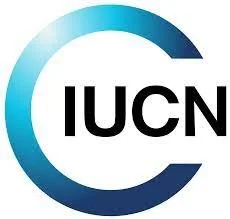Peace and conflict sensitivity are inextricably linked to environmental policy.
We cannot sustain a healthy planet or achieve prosperity for all without inclusive and just peace, recognising that inequitable natural resource management and environmental damage can fuel conflict and division. Environmental policy should be aware of how it interacts with local contexts and potential contributions to, or causes of, conflict, seeking to be conflict sensitive and to purposefully promote equitable collaboration on natural resource and environment issues. International funding and climate finance flows should meaningfully factor in context-specific peace and security factors in order to quantify and capture peace co-benefits.
A group of 18 organizations and more than 40 individuals collaborated throughout 2021 and 2022 to bring peace & security into focus at Stockholm+50. References to peace and conflict prevention in the various outcome documents of Stockholm+50 represent a marked difference and turning point in the global discussion on sustainable development.
Read more about peace at Stockholm, including policy outcomes, here.
The community welcomes the building momentum around peace and conflict sensitivity within environment and climate change policy.
Our ecosystem
Explore the Peace@Stockholm+50 blog series:
The Missing Peace: Making Sustainable Development Work, a post by Carl Bruch, Catriona Gourlay, Ryan Maia, and Catherine Wong outlining four key opportunities for integrating peace into sustainable development.
While the Wars are Waged: States can do more to reduce environmental damage from hostilities, a post by Helen Obregón and Vanessa Murphy locating international law protecting the environment in armed conflict as a central touchstone for government ambitions to achieve a healthy planet in Leadership Dialogue 1.
Stockholm+50: Why human rights and conflict-sensitivity are central to sustainable and just responses to planetary crises, a reflection by Florence Foster, Maya Street, Hannah Peters, Jessica Johansson, Sylvia Servaes, and Caroline Kruckow highlighting concrete entry points for peace in Leadership Dialogue 2.
Getting environmental governance right in a new era of risk, a blog by Claire McAllister, David Michel, and Caspar Trimmer on concrete recommendations for a just transition and Leadership Dialogue 3.
Environmental Peacebuilding for a Planet on the Move, a piece by Mirali Shukla, Galeo Saintz, Elaine Hsiao, and Richard Matthew outlining the opportunities migration and environmental change present for environmental peacebuildin
Peace and conflict sensitivity are inextricably linked to environmental policy because:
The environment and policies around it can fuel conflict.
Damage from conflict has a significant negative impact on the natural environment.
Cooperation to respond to climate change and manage natural resources can contribute to building peace.
A just transition and prosperity for all is realised by enhancing peace.
Responding to environmental and climate challenges requires an interdisciplinary and cross-sectoral approach.
Stockholm+50 presents an opportunity for policy actors to build political coalitions and take practical action on initiatives that address environmental challenges while also promoting peaceful coexistence and equitable natural resource management.
The following recommendations provide practical ways to achieve this, including:
Building conflict sensitivity into policy:
Analysing, preventing, and mitigating the conflict implications of global environmental, nature conservation, and climate finance policy decisions.
Identifying environmental entry points for enhancing peace.
Allocating resources to staff capacities and organisational practices that allow governments, multilateral agencies, non-government environmental organisations, and business actors to meaningfully integrate conflict and peace issues into their environmental, conservation, and climate finance work.
Developing and adopting funding criteria, financial norms, and guidelines which require and facilitate the integration of peacebuilding or conflict sensitivity perspectives.
Building interdisciplinary collaboration:
Supporting initiatives that share learning, research and practical tools on how to integrate peace and conflict issues into environmental, nature conservation, and climate finance action.
Relationship building among climate finance and peace and security stakeholders towards defining best practices and building financial pipelines that generate and capture peace dividends.
Adopting an inclusive approach to environmental policy formulation and delivery, promoting leadership from women, indigenous communities, youth, and other marginalised persons.
Stockholm+50
-
Stockholm+50 is a commemoration of the 50th anniversary of the 1972 United Nations Conference on the Human Environment, providing a moment for the international environmental community to gather, reaffirm multilateralism, and move forward together.
It will be held 2-3 June in Stockholm, Sweden.
Stockholm+50 will be a two-day meeting at the ministerial level, bringing together policymakers and government representatives. There will be three "Leadership Dialogues" on three different topics each led by a pair of countries. There will be no formal outcomes adopted at the conference.
For more information, visit: https://www.stockholm50.global/
-
A group of 18 organizations and nearly 30 individuals have been meeting and collaborating over the past two months around key messages and opportunities to mainstream peace and conflict sensitivity at Stockholm+50. The key messages build on the white paper, but are tailored to an environment audience. There are a series of planned events on a range of topics, to be hosted by partners in person. One of the goals of this ecosystem is to continue to bridge silos, connecting peacebuilding and environmental actors throughout the process.
Representatives will hand out physical copies of the White Paper in Stockholm, as well as business cards “for peace.”
-
30 May, 13 - 18, Stockholm University and online - Symposium on the law for security and sustainable development, (Register here)
31 May, 8.30 - 12, The Westman Palace Stockholm - Making peace with nature: Environmental peacebuilding for sustainable development (Register here)
1 June, ABF-huset Stockholm - People’s Forum (Learn more here)
2 June, 11.30 - 12.45, Room 1 - Improving sustainable development by integrating peace: Approaches, tools, and lessons from environmental peacebuilding (Official S+50 side event)
3 June, 11 - 12.15, Room 3 - Global call for financial action towards the nexus between climate and security (Official S+50 side event)
3 June, 13 - 14.15, Room 1 - Environmental crises as humanitarian crises (Official S+50 side event)
3 June, 17.15 - 18.30, Room 1 - Environment of Peace: Securing a just and peaceful transition in a new era of risk (Official S+50 side event)
Before the forum in early June, you can join two additional online meetings to discuss the intersection of peace and the environment:
16-19 May - Final Leadership Dialogue working group meetings (Register here)
23-25 May - Stockholm Forum on Peace and Development (Register here)
-
You can help disseminate messages of peace at Stockholm+50. You can do this by:
Sharing these messages on social media
Sending this 2-pager to your network, and especially the contacts you know will attend.
Commenting on and sharing the blogs linked below.
You can also send interested persons back to this website, so that they can learn more about the links between peace, the environment, and climate change.
-
Are you planning to attend Stockholm+50? Let us know.
Remember, as you participate in regional consultations or leadership dialogue working group meetings, speak up about conflict sensitivity and peace. Our overall goal is to bring those topics to attention, and we can use your help in raising their profile.















